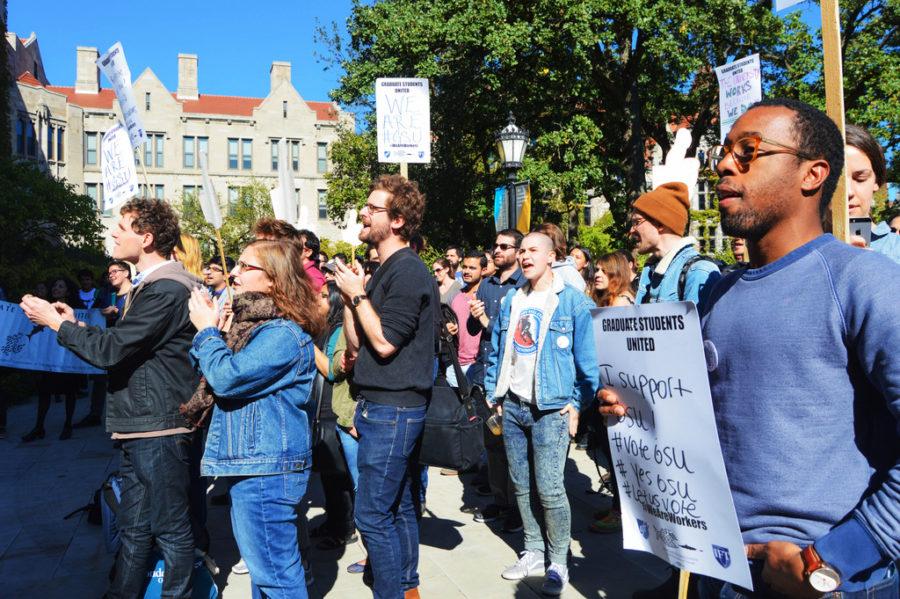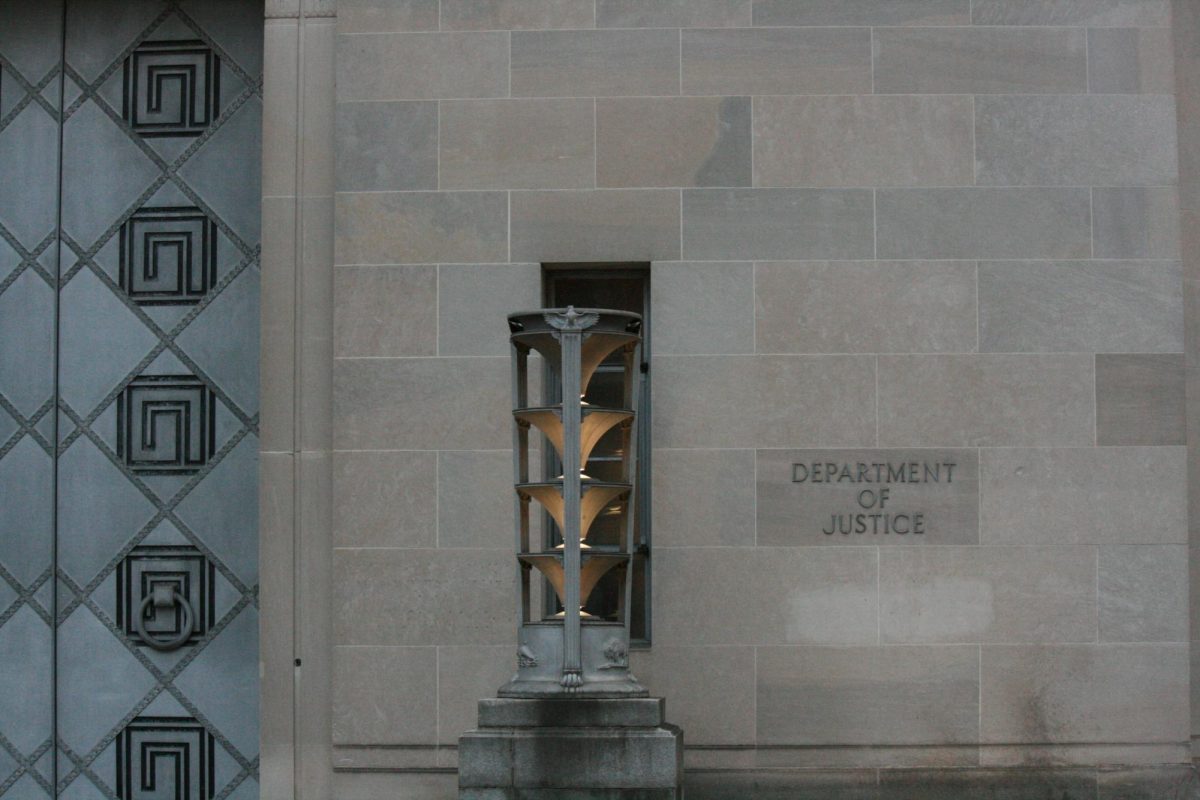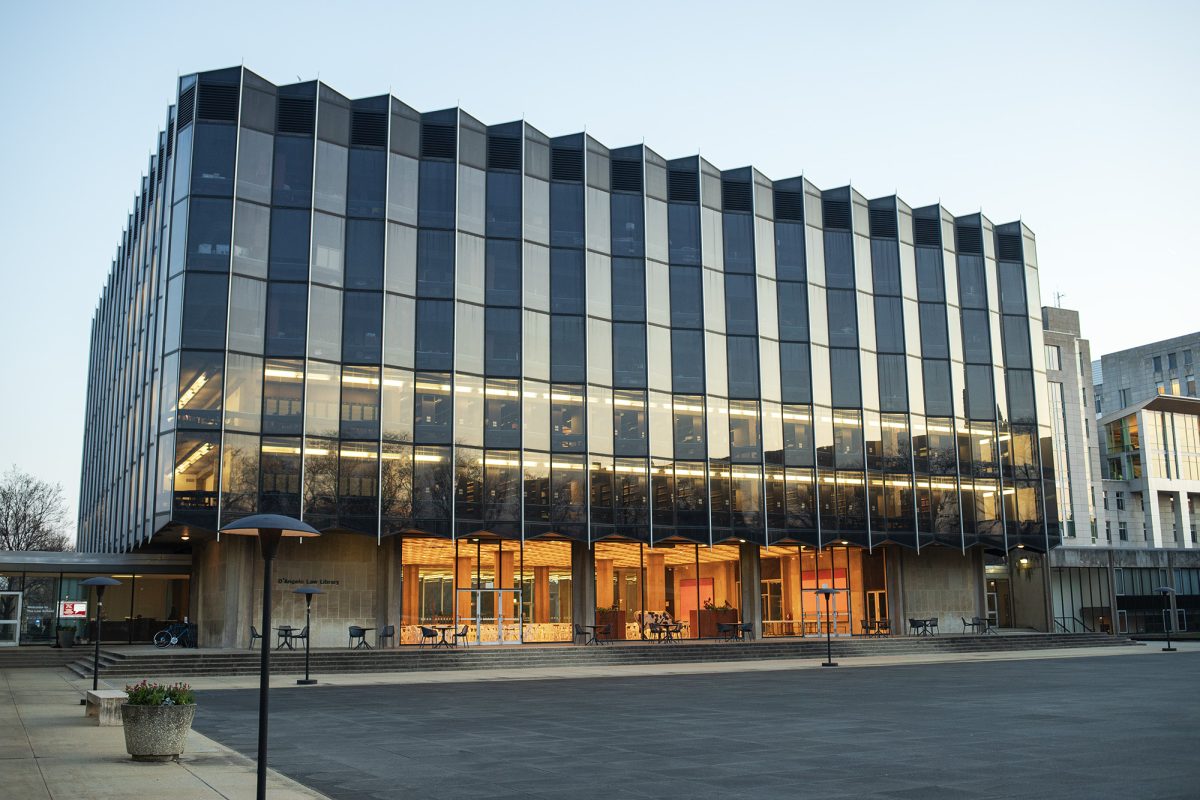University of Chicago graduate students have voted to unionize by an overwhelming margin, a result that validates Graduate Students United (GSU)’s years of organizing and deals a major blow to the administration’s anti-unionization efforts.
1,103 “yes” votes were counted, exceeding the combined 479 counted “no” votes and the 149 votes that were challenged. Voter turnout was 70.5 percent, including the challenged votes, according to the National Labor Relations Board (NLRB)’s tally at its regional headquarters downtown on Thursday.
“Everyone is just so pumped and happy today. It feels great,” sixth-year evolutionary biology student Daniela Palmer said after the votes were counted. “This is a huge accomplishment for us—not only for those who worked on the campaign—but also for the many students who have been working within GSU over the past 10 years or so. We sent a strong message collectively that we should have a say on this campus.”
Christina Roman, a member of an anti-unionization student group called Stop and Think, declined to discuss the outcome of the vote, but said she was pleased with the turnout. “I really expected there to be like 500 votes total. The fact that more than half the student body voted is a fantastic thing,” she said in a message.
GSU members were active on Twitter during the hearing, providing updates and criticizing actions of the University’s attorneys. Palmer said the University's actions at the NLRB proceedings today were frustrating, but not surprising.
“I think it continues the style of response that they’ve been giving us through this campaign. It wasn’t necessarily surprising to see, but of course frustrating.” she said. “I genuinely hope they will respect this outcome given how significant our margins were for the win.”
Of the 149 votes that remained challenged after the University and GSU agreed to resolve some of the disputed votes, 123 were cast by people who showed valid University ID when they voted, but were not on a list of eligible voters. At first, GSU and the University agreed to discard the majority of these votes. University representatives later decided to leave the challenges unresolved for further investigation.
Ultimately, the challenged votes did not matter because the margin was so large.
The University is one of a dozen universities to host graduate student unionization votes since an NLRB decision the August before last reopened the possibility. Several of these universities have continued legal challenges and refused to bargain after successful union votes. The University had filed to block this week’s vote, in part because a new Trump-era majority on the NLRB might again move to block graduate student unionization.
A member of the faculty senate who spoke on the condition of anonymity said she was very frustrated with how the debate has affected campus unity. “It’s been terribly polarizing, pitting admin and faculty against students. We have much bigger things to worry about. The infighting is disheartening and depressing. Especially since GSU has alluded to the admin’s alliance with the Trump administration, which couldn’t be further from the truth. The Trump admin is doing everything in its power to dismantle solid academic institutions, as they see us (as an aggregate) as the enemy.”
The administration argued for months that a union would not be in the best interests of graduate students. An e-mail from Executive Vice Provost David Nirenberg on Sunday cautioned that unionization would introduce a “third party” that could interfere with graduate students’ relationships with the University.
A spokesperson for the University said Thursday that its fight isn’t over.
“The University of Chicago has joined several other universities in asking the Board to revisit its recent reversal of position on this question, and our request is pending. We continue to have concerns about the impact of a graduate student union on the University’s mission of creating and imparting knowledge through direct mentorship, teaching, and individually guided research and writing,” Marielle Sainvilus said.
GSU said its next steps will involve creating new bylaws to solidify a democratic structure for the organization with elected representatives. They will also survey members to identify the most important issues to prioritize.
“This huge victory that we’ve just had shows how graduate students are ready to take up this responsibility. We are going to be responsible for the work that we create and the labor that we do,” said third-year mathematics student Claudio Gonzáles.
Fourth-year graduate student Grant MacDonald echoed Palmer in saying that the margin should send a message.
“I’m just so delighted that we not only won, but it was very convincing we got more than double the ‘no’ votes,” he said. “I think there’s no way the University can’t notice that.”
Senator Tammy Duckworth (D-IL) congratulated UChicago graduate students in a statement to The Maroon Friday. “Congratulations to the University of Chicago teaching and research assistants who overwhelmingly voted to organize! I’m proud to support your efforts to collectively bargain for better wages and working conditions.”
Earlier this week, several voters told The Maroon that even though they voted yes, they were skeptical about GSU as an organization.
“The union organizers are too aggressive. I voted yes, but almost voted no because of the aggression,” one said.
GSU is affiliated with the American Federation of Teachers (AFT), Illinois Federation of Teachers (IFT), and the American Association of University Professors (AAUP). Now that they’ve voted to unionize, they will officially register as a local AFT/IFT/AAUP affiliate, providing sources of state-level and national support.
AFT president Randi Weingarten said she was proud that graduate workers overcame obstacles to win decisively.
“The grassroots passion that animated their struggle was apparent from the beginning, and for 10 years they stood strong to achieve this historic victory,” she said. “The AFT will have their backs every single day, as they use their voice to fight for issues they care about, such as inclusion and healthcare and academic freedom, the representation they need, and the kind of country they want to live in…. I call on the Chicago administration to halt its attacks on graduate workers, respect the law and come to the table to secure mutual gains in a spirit of collaboration.”
Sainvilus said in a statement that the University will “continue to support” graduate students as it continues to pursue legal options.
“Regardless of the outcome of the legal process, we will continue to support our graduate students and respect their contributions. Since 2007, the University has invested more than $2 billion in direct financial support for graduate students, from stipends to health care and more, in the absence of union representation.”
Tyrone Lomax, Anant Matai, and Adam Thorp contributed reporting.









